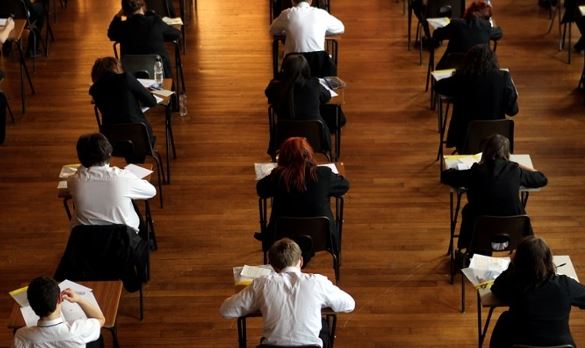Bright children from disadvantaged backgrounds fall by the wayside at GCSE

Too many bright children from disadvantaged backgrounds fall by the wayside at secondary school despite achieving top results at primary level, according to analysis commissioned by the Sutton Trust.
The trust said it identified the group of underachieving disadvantaged pupils as “missing talent” and found the group was less likely to take subjects such as sciences or languages that would help them gain places at universities.
The research reveals that a much higher proportion of those on free school meals or from disadvantaged backgrounds are unable to go on and achieve similar results at GCSE level, even for those who were ranked in the highest 10% of results at state primary schools in England.
While it is well established that disadvantaged children tend to achieve lower results at all levels of schooling, the research by Rebecca Allen looked specifically at the most able pupils at primary school and compared their later results at GCSE.
Allen found that one out of three boys eligible for free school meals – usually from households earning £16,000 or less a year or on benefits – who got top marks at key stage 2 failed to gain among the top 25% of grades at GCSE. This was more than double the proportion of boys not on free school meals who got the same marks.
Among girls, the difference in outcome was little better in comparison with their peers. While a quarter of disadvantaged girls were classed as missing talent, just 9% of girls from better-off households saw the same drop-off in their results at the GCSE stage.
Allen, director of the Education Datalab research group, said that focusing on the performance of high attaining pupils gave insight into the poor performance of children from disadvantaged backgrounds, whose schools receive pupil premium funding designed to help overcome the barriers they face.
Guardian







